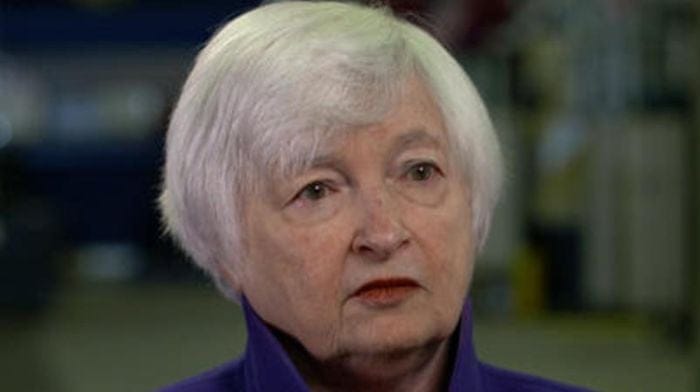
By Casey Harper (The Center Square)
U.S. Treasury Secretary Janet Yellen said Tuesday that more bank bailouts could be coming.
Yellen made the comments as part of her prepared remarks at the American Bankers Association meeting in Washington, D.C. Her comments come after the federal government stepped in to shore up collapsing regional banks in recent days, raising concerns about the economy and the federal government’s role in aiding hurting financial institutions.
Yellen referenced the “swift response” to help those banks with federal funds. She said, though, that the efforts “were not focused on aiding specific banks or classes of banks.”
“Our intervention was necessary to protect the broader U.S. banking system,” she said.
Yellen raised eyebrows with her next statement.
“And similar actions could be warranted if smaller institutions suffer deposit runs that pose the risk of contagion,” Yellen said, reportedly signaling that similar action for other banks could be coming.
Yellen also tried to restore confidence in the economy.
“The situation is stabilizing, and the U.S. banking system remains sound,” she said.
Related: Yellen Answers For Biden Budget’s Tax Hikes, IRS Spending
President Joe Biden has repeatedly emphasized that taxpayers will not be on the hook for bank bailouts.
Critics, though, have cast doubt on those comments.
“The deposit insurance fund doesn’t have anywhere near enough liquidity to cover depositors,” E.J. Antoni, an economist at the Heritage Foundation, told The Center Square. “If it did, the Federal Reserve would not have had to announce an emergency lending fund to meet the demand for liquidity.
There is also dispute over the term “bailout.”
“There is no way around the reality that taxpayers are on the hook here,” Antoni added, as The Center Square previously reported. “When the FDIC runs out of cash, it simply goes to the Treasury for more, as we saw in 2009. There’s three ways to pay for that. First, the FDIC can increase its insurance premiums charged to banks.”
“But those fees that finance the FDIC are passed entirely on to customers,” Antoni added. “The second option is for the Treasury to just give the money to FDIC instead of loaning it, in which case the taxpayer is directly responsible for it. Lastly, the Fed can finance the expense by just printing the money, which causes inflation, which is a hidden tax.”
Syndicated with permission from The Center Square.
Read Next: Biden Treasury Sec. Yellen Claims Economy Is In New Phase of ‘Recovery’
